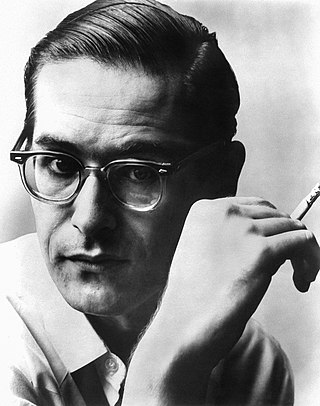
William John Evans was an American jazz pianist and composer who worked primarily as the leader of his trio. His use of impressionist harmony, block chords, innovative chord voicings, and trademark rhythmically independent, "singing" melodic lines continue to influence jazz pianists today.

The Tony Bennett Bill Evans Album is a 1975 studio album by singer Tony Bennett and pianist Bill Evans.
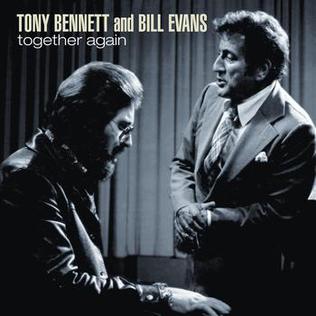
Together Again is a 1977 studio album by singer Tony Bennett and jazz pianist Bill Evans. It was originally issued on Bennett's own Improv Records label, which went out of business later that year, but was subsequently reissued on Concord.

Intermodulation is a 1966 jazz album by pianist Bill Evans and jazz guitarist Jim Hall. It is a follow-up to their 1962 collaboration, Undercurrent.

Everybody Digs Bill Evans is a trio and solo album by jazz pianist Bill Evans. It was released in early 1959 on the Riverside Records label.
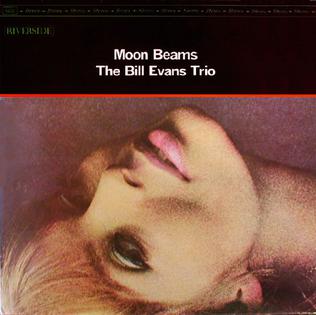
Moon Beams is a 1962 album by jazz musician Bill Evans and the first trio album he recorded after the death of bassist Scott LaFaro. It introduces two important Evans originals, "Re: Person I Knew", and "Very Early," which Evans had actually composed as an undergraduate. The originals serve as bookends to an album otherwise consisting of standards from the 1930s and 1940s.

You Must Believe in Spring is an album by American jazz pianist Bill Evans, recorded by him with bassist Eddie Gómez and drummer Eliot Zigmund in August 1977 and released in February 1981, shortly after Evans's death in September 1980.
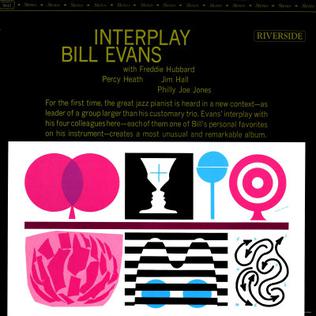
Interplay is a 1963 album by jazz musician Bill Evans. It was recorded in July 1962 in New York City for Riverside Records. The Interplay Sessions is a 1982 Milestone album that includes the entirety of this album, and tracks recorded for Riverside on August 21 and 22 of the same year with a different lineup . The Interplay Sessions peaked at number 26 on the Billboard Jazz Albums charts in 1983. The CD reissue Interplay adds another take of "I'll Never Smile Again" as a bonus track. At the Grammy Awards of 1984, Orrin Keepnews won the Grammy Award for Best Album Notes for the reissue.

Further Conversations with Myself is a 1967 album by jazz pianist Bill Evans. All the pieces are solo with piano overdubs, a method Evans used on his earlier release Conversations with Myself. This time, however, he employed only two piano tracks instead of three. The album was nominated for a Grammy. It was reissued on CD by Verve in 1999.

Alone is a solo piano album by jazz musician Bill Evans, recorded in the fall of 1968 for Verve Records, featuring a particularly notable 14+-minute performance of the jazz standard "Never Let Me Go." Evans contributed notes to the album, including the following statement:
Perhaps the hours of greatest pleasure in my life have come about as a result of the capacity of the piano to be in itself a complete expressive musical medium. In retrospect, I think that these countless hours of aloneness with music unified the directive energy of my life. At those times when I have achieved this sense of oneness while playing alone, the many technical or analytic aspects of the music happened of themselves with positive rightness which always served to remind me that to understand music most profoundly one only has to be listening well. Perhaps it is a peculiarity of mine that despite the fact that I am a professional performer, it is true that I have always preferred playing without an audience. This has nothing to do with my desire to communicate or not, but rather I think just a problem of personal self-consciousness which had to be conquered through discipline and concentration. Yet, to know one is truly alone with one’s instrument and music has always been an attractive and conducive situation for me to find my best playing level. Therefore, what I desired to present in a solo piano recording was especially this unique feeling.
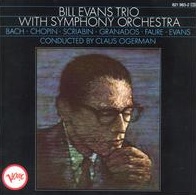
Bill Evans Trio with Symphony Orchestra is an album by American jazz pianist Bill Evans and his trio, released in 1966, featuring jazz arrangements of works by classical composers Granados, J.S. Bach, Scriabin, Fauré, and Chopin. The group is accompanied by an orchestra arranged and conducted by Claus Ogerman. Originals by both Evans and Ogerman are also included.
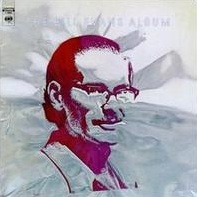
The Bill Evans Album is an album by the jazz pianist Bill Evans, released in 1971 on the Columbia label. It is his first album to feature all compositions written, arranged and performed by him. It was the first recording in which Evans used a Fender Rhodes piano.

Crosscurrents is an album by American jazz pianist Bill Evans, recorded in early 1977 and released in 1978 on Fantasy as F 9568. Along with Evans' trio of Eddie Gómez and Eliot Zigmund, Lee Konitz and Warne Marsh guest on alto and tenor saxophone respectively.

Quintessence is an album by American jazz pianist Bill Evans. It was recorded in 1976 for Fantasy Records and released the following year. At this time usually playing solo or with his trio, for these sessions Evans was the leader of an all-star quintet featuring Harold Land on tenor saxophone, guitarist Kenny Burrell, Ray Brown on bass, and Philly Joe Jones on drums.
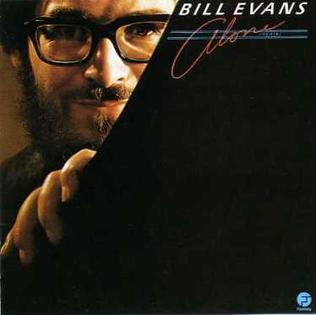
Alone (Again) is a solo piano album by American jazz pianist Bill Evans, recorded in December 1975. A follow-up to his earlier solo album Alone, it was released in 1977 on Fantasy Records and reissued on CD in 1994 by Original Jazz Classics. At the time it was recorded, Evans had been playing an increasing number of solo dates and was inspired after hearing Marian McPartland play solo in Monterey. Evans's manager Helen Keane commented:
As much as Bill enjoyed playing alone at home, and although by this time he regularly included a solo section in his concert program, he found recording in this context very difficult. It was probably the only area he felt insecure about musically, and the fact that he'd gotten a Grammy for Alone didn't seem to help.

From Left to Right is an album by American jazz pianist Bill Evans, released in 1971.
"Waltz for Debby" is a jazz standard composed by pianist Bill Evans, which became "his most famous tune." He first recorded it as a brief solo piano piece on his debut album, New Jazz Conceptions (1956). Lyrics were added about six years later by Evans's friend Gene Lees. "Debby" in the composition's title refers to Evans's then 3-year-old niece, Debby Evans, whom he often took to the beach.

Montreux III is a live album by jazz pianist Bill Evans with bassist Eddie Gómez, recorded at the Montreux Jazz Festival in Switzerland in 1975 and released on the Fantasy label. The album was the third of Evans' Montreux concert recordings to be released, following Montreux II (1970) and the Grammy Award-winning Bill Evans at the Montreux Jazz Festival (1968).

Since We Met is a live album by jazz pianist Bill Evans with Eddie Gómez and Marty Morell, recorded at the Village Vanguard in New York City in 1974 and released on the Fantasy label in 1976. Additional recordings from Evans's 1974 Village Vanguard performances were also issued on the album Re: Person I Knew, released posthumously in 1981. Since We Met was digitally remastered and reissued as a CD in 1991 on Original Jazz Classics.
Time Remembered is a modal jazz standard composed by jazz pianist Bill Evans.


















